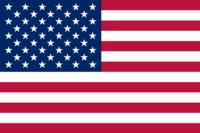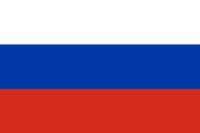
The Only Industry Buyer! AkzoNobel Bids Alone for BASF's €6 Billion Coatings Business
Hz info2025-07-23 16:37
Hz info,According to Bloomberg, people familiar with the matter revealed that BASF has requested all parties participating in the bidding for its coatings business to submit their offers in August. Previously, BASF had completed the screening of potential acquirers, and the estimated value of this coatings business transaction could reach as high as €6 billion (approximately $7 billion) or even more.
Sources said that private equity firms Carlyle Group Inc., KPS Capital Partners, Lone Star Funds, and Platinum Equity have all advanced to the next round of bidding. Dutch coatings manufacturer AkzoNobel is also among them and is the only bidder from within the coatings industry. As the relevant information has not been made public, these sources all requested anonymity.
From the perspective of strategic alignment, there is a high degree of compatibility between BASF's coatings business and AkzoNobel. AkzoNobel holds a significant position in the global coatings market, with a wide range of businesses covering decorative, automotive, industrial, marine, and other fields. However, in the highly valuable automotive OEM (Original Equipment Manufacturer) coatings segment, it is relatively weak. If AkzoNobel successfully acquires BASF's coatings business, it will be a game-changer. Not only will it significantly strengthen its global leadership position in the automotive OEM coatings sector, but it will also substantially expand its business footprint in refinish and industrial coatings, especially in surface treatment.
Financially, AkzoNobel also has certain advantages in acquiring BASF's coatings business. Previously, by selling its stake in Akzo Nobel India, AkzoNobel successfully obtained €900 million in net cash. This injection of funds not only helped the company pay off debts of up to €500 million, stabilizing its investment-grade credit rating, but more importantly, reserved €400 million in liquid funds for potential acquisitions. This puts AkzoNobel in a favorable position in terms of fund preparation when facing the acquisition of BASF's coatings business.
If AkzoNobel ultimately succeeds in acquiring BASF's coatings business, the global coatings industry landscape will undergo significant changes. At that time, a European super giant spanning decorative coatings, high-performance coatings, and automotive coatings (OEM + refinish) will emerge. Currently, the global coatings market presents a first-tier pattern of tripartite confrontation among Sherwin-Williams ($19.38 billion in coatings sales), PPG ($15.8 billion), and AkzoNobel ($11.16 billion). If merged with BASF Coatings' annual sales of €4.3 billion (approximately $4.7 billion), AkzoNobel's annual sales will exceed $15.8 billion, on par with PPG, forming the prototype of a duopoly competition of "Sherwin-Williams - AkzoNobel/PPG". Especially in the automotive OEM sector, AkzoNobel will gain a subversive advantage through this acquisition, which is expected to break the existing market competition pattern.
However, relevant negotiations are still in full swing, and there are still many uncertainties regarding the final outcome. Sources said that bidders may decide not to submit offers based on various factors, and BASF may also choose to hold onto the asset for a longer period. In response to external attention and speculation, representatives from AkzoNobel, BASF, Carlyle, Lone Star Funds, KPS, and Platinum Equity all declined to comment.
Why Is BASF Selling Its Coatings Business?
BASF's decision to sell its coatings business is not a spur-of-the-moment decision but a prudent choice made against the backdrop of the current complex economic environment and the company's strategic adjustments.
After Markus Kamieth, BASF's CEO, took the helm last year, he embarked on leading the company through a large-scale organizational restructuring. In recent years, like many German industrial manufacturers, BASF has been struggling with high energy costs and weak demand, especially in the Chinese market, which was once an engine for profit growth. Earlier this month, BASF warned that its earnings this year would be lower than previously expected due to suppressed demand caused by US tariffs and geopolitical uncertainties.
On July 15 this year, BASF's preliminary financial data for the second quarter of 2025 further exposed the company's difficulties. The data showed that sales in the second quarter decreased by 2.1% to €15.77 billion, mainly because all business segments were affected by negative currency effects and price declines, especially the chemicals business segment. Although overall sales increased slightly thanks to significant growth in sales volumes in the agricultural solutions and surface treatment technology business areas, it was still difficult to offset the impact of other adverse factors.
BASF's earnings before interest, taxes, depreciation, and amortization (EBITDA) excluding special items for the second quarter of 2025 are expected to be €1.77 billion, lower than the €1.96 billion in the same period last year, mainly due to a significant reduction in profits in the chemicals business area and the "other" category. Net income for the second quarter is expected to be €80 million, far lower than the €430 million in the same period last year, mainly attributable to a substantial increase in income tax expenses and a decrease in income from equity investments.
BASF pointed out that due to the continued macroeconomic and geopolitical uncertainties, it is expected that the global gross domestic product (GDP) growth rate in 2025 will be lower than previously predicted. This change is mainly due to the tariff policy announced by the United States in early April and the resulting market uncertainties. As a result, the demand for chemicals in 2025 is expected to be lower than previously predicted.
Based on the above factors, BASF has lowered its full-year earnings expectations: it is expected that EBITDA excluding special items will be between €7.3 billion and €7.7 billion, compared to the previous forecast range of €8 billion to €8.4 billion. The revised expectations are lower than BASF's €7.9 billion in 2024, and analysts generally expect €7.6 billion for 2025.
Under such operating pressures, BASF's sale of its coatings business aims to optimize asset allocation and concentrate resources on developing core businesses. As one of BASF's autonomous businesses, the coatings business has a relatively low degree of value chain relevance to the company's core chemicals business. By selling the coatings business, BASF can recoup funds, alleviate financial pressure, and invest more resources in core business segments such as chemicals, materials, industrial solutions, and nutrition and care, thereby enhancing the company's overall competitiveness.
In February this year, BASF agreed to sell its Brazilian architectural coatings business to Sherwin-Williams for $1.15 billion. This move is an important step in BASF's strategy of divesting non-core assets. The company has also hired advisors to prepare for a possible public listing of its agricultural chemicals department, which may be valued at more than €20 billion. All these signs indicate that BASF is accelerating the pace of its asset structure adjustment to adapt to the constantly changing market environment.
The sale of BASF's coatings business has entered a critical stage, and the submission of bidding offers in August will be an important milestone in determining the final destination of this business. For potential bidders like AkzoNobel, a successful acquisition will bring enormous strategic opportunities for their own development. For BASF, selling its coatings business is also a key measure to cope with the current difficulties and achieve strategic transformation. For the global coatings industry, regardless of the outcome, this transaction will have a profound impact on the future market competition landscape.
MORE HZinfo
- New Favorite in Flooring! Marble-like Floor Coating: Aesthetics and Strength, Dual-Track Excellence
- However, the emergence of Marble-like Floor Coating is redefining the industry as the “Ultimate Alternative.”
-
2025-12-17
- Recommended products:BDS No.1 Bamboo Charcoal 5-in-1 Wall Topcoat
- BDS No.1 Bamboo Charcoal 5-in-1 Wall Topcoat is an interior latex paint with outstanding mold-resistant performance.
-
2025-12-17
- Striking Gold: Henkel Introduces New Color Variant of Thin Organic Coating for Metal Surfaces
- Henkel is expanding its portfolio in the field of thin organic Coating (TOC) with a new color variant.
-
2025-12-17


 English
English 简体中文
简体中文 Русский
Русский إنجليزي
إنجليزي